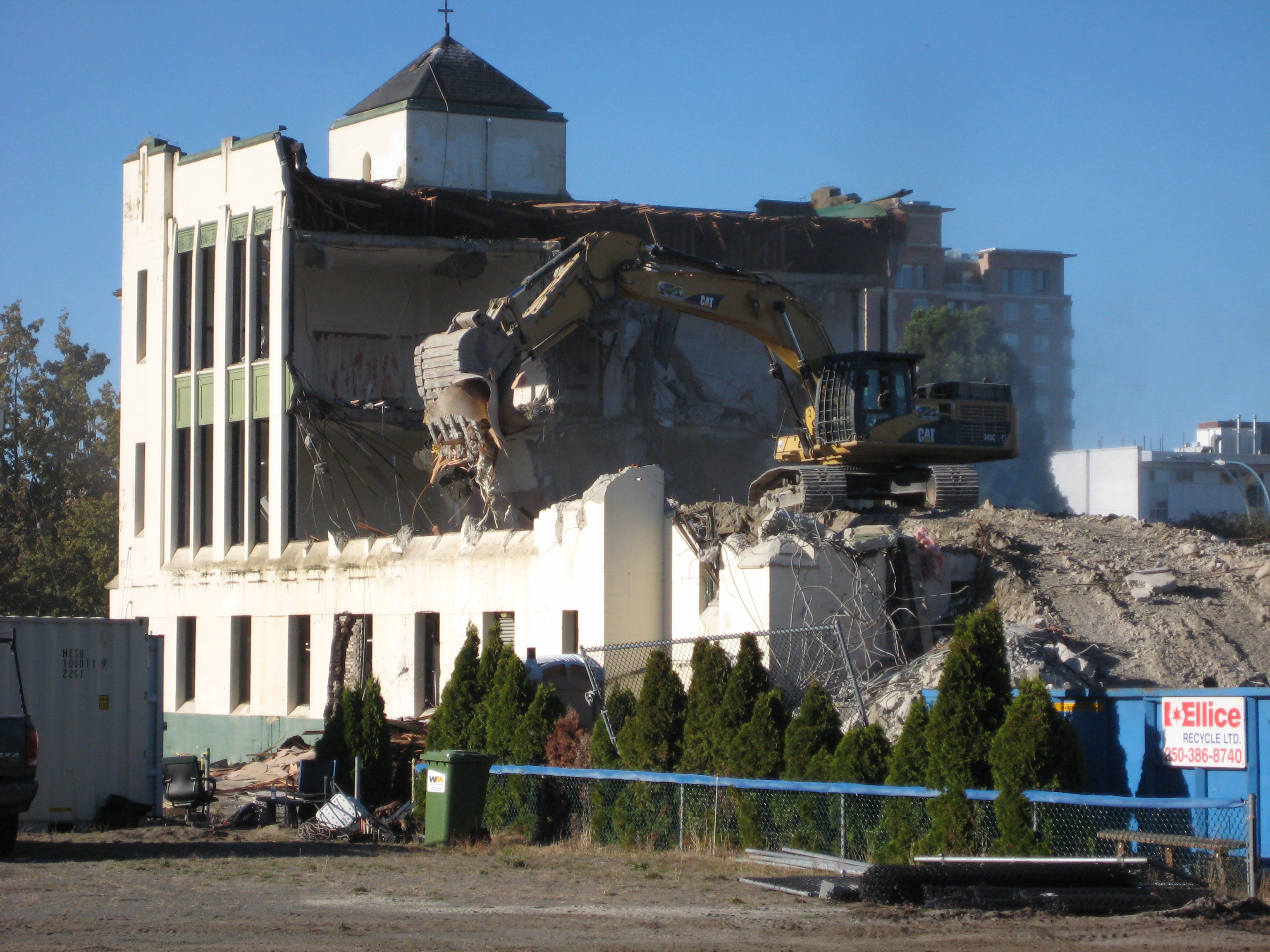
Urban farming fight exposes gentrification, displacement, and colonization at core of Victoria City policy
 This summer, the City of Victoria wanted to change the Official Community Plan (OCP) to undermine urban food production in favor of developers. The City wanted to prioritize condo development over growing food. Food and housing activists prevented it. Not-so-coincidently, this attempted change to the OCP targeted the section of the plan used by farmers, housing activists, and community members in 2015 when trying to oppose a Bosa/BlueSky high-end housing development in a low-income neighbourhood.
This summer, the City of Victoria wanted to change the Official Community Plan (OCP) to undermine urban food production in favor of developers. The City wanted to prioritize condo development over growing food. Food and housing activists prevented it. Not-so-coincidently, this attempted change to the OCP targeted the section of the plan used by farmers, housing activists, and community members in 2015 when trying to oppose a Bosa/BlueSky high-end housing development in a low-income neighbourhood.
The OCP is a 30-year plan for the City created through public consultation and used to guide municipal decision-making. At a public hearing on September 8th, City staff was forced to admit on record that the proposed change to food policy came from private meetings with developers.
Now that the OCP amendment is defeated, and with the Bosa/BlueSky development well underway, we want to take the opportunity to reflect on how these events have shown us the intersections between urban farming, gentrification, displacement, and colonization.
It’s all stolen land
When we’re on stolen lands, decolonization has to be the starting point for all of our discussions. Gentrification is not only about displacing poor people. On stolen lands it’s also about entrenching dispossession of Indigenous nations.
The City of Victoria has declared 2017 a “Year of Reconciliation,” and in Mayor Helps’ words, “Reconciliation means changing our practices and the landscape of the city to honour the past and create the future with our First Nations partners.” But these are just empty words. In outlining the OCP changes, City staff specifically recommended against consultation with Songhees and Esquimalt First Nations, saying it is not required under local colonial law.
How can any land use planning decision be made without considering how settlers’ actions on the land will affect Lekwungen people? How can Council arrogantly consider whether the “built environment” should take priority with zero discussion with Lekwungen communities whose traditional territories are being targeted for development?
Displacement as “renewal” and the density/affordability red herrings
In 2015, Bosa went to City Council with their plan to “revitalize” the low-income neighbourhood of North Park by turning the former St. Andrews Catholic School site on Pandora Avenue into 209 units of high-end apartments. This was just the latest step in targeting this neighbourhood for gentrification and displacement of low-income people. The development will also significantly shade Victoria’s oldest urban farm, a community hub and local food producer.
Last summer, despite strong opposition by four neighbourhood associations, housing activists, and urban farming advocates, City Council approved the Bosa development citing the need to meet downtown density and “affordable” housing goals.
The language of density and affordability were red herrings masking an ongoing process of displacement and deliberate reshaping of communities, something the local paper cheerfully called “a neighbourhood renewal.” This process is about who lives here, who is considered valuable and who is disposable. The Bosa development creates luxury housing to bring in people deemed more desirable. The 11 units of below-market rentals will not be affordable to people living in poverty.
It’s not either/or: Food security and housing security
In defending both the Bosa development and the proposed OCP changes, Mayor Helps tried to pit urban farming advocates against housing justice activists by prioritizing one over the other as though they could not coexist, let alone reinforce each other. In working together, activists asserted that both food security and housing security are essential human needs and community planning has to make sure that people have both safe, decent, affordable housing AND space to grow nutritious, culturally relevant food.
The struggle continues
This time, the OCP amendment did not pass. We successfully brought together multiple movements to address the structural issues underlying the lack of access to affordable food and housing in the City, and exposed how wealthy developers are shaping the City’s policy and physical landscape. But despite our victory, our experience demonstrates that City council still has the tools it needs to further gentrification.
The fight is far from over. We will continue to work together to end colonial land-use decision making, build respectful relationships with Indigenous people to determine how to meet needs for food and housing in ways that do not rely on exploitation of workers and lands, and stop gentrification and displacement.
